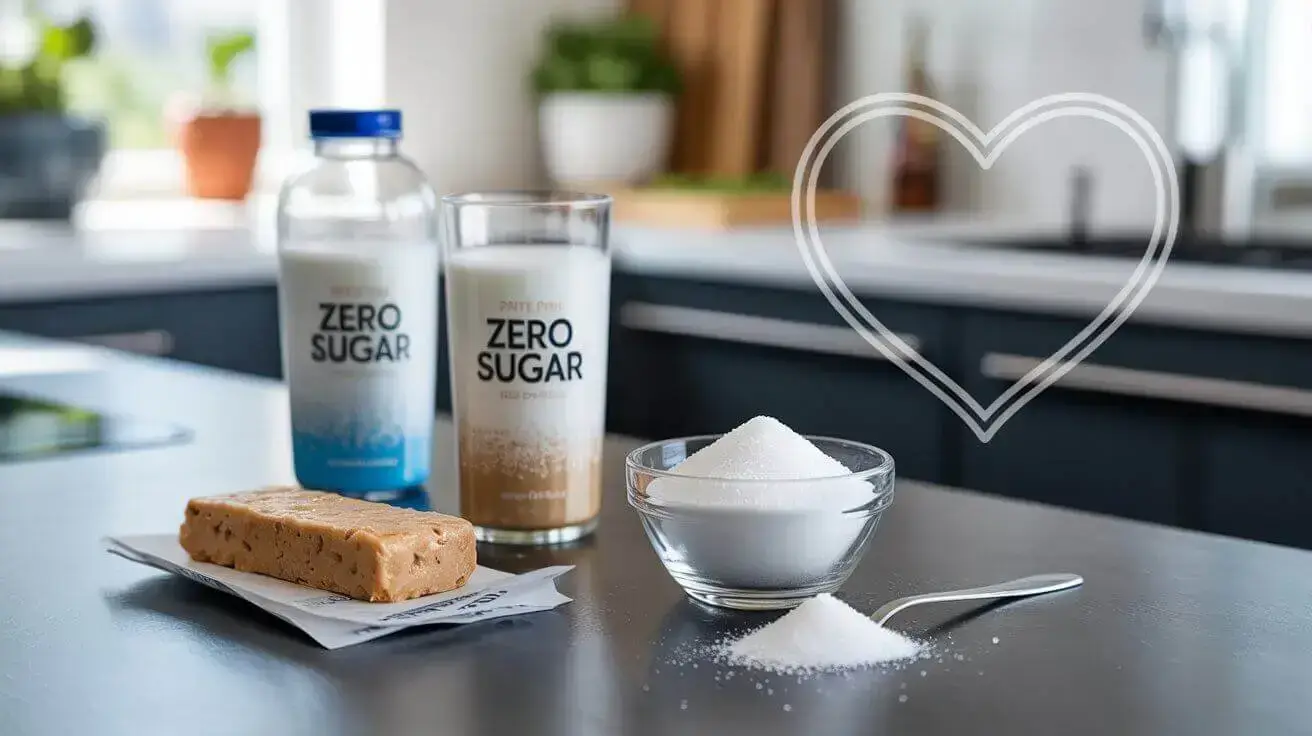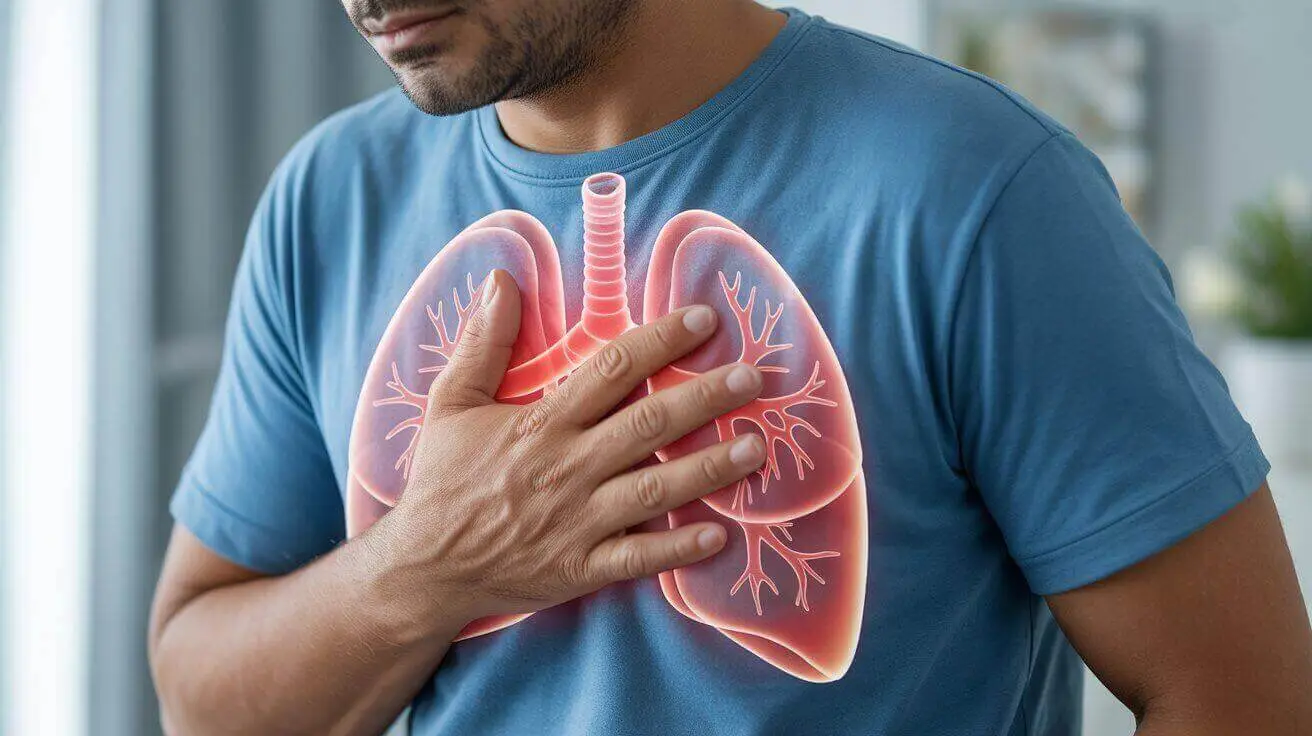It’s 3 p.m. The morning’s focus has faded, and a familiar, almost primal urge begins to creep in. It’s not quite hunger, but it’s a powerful pull—a classic afternoon sugar craving. A cookie from the breakroom, a candy bar from the vending machine, or that gourmet coffee drink loaded with syrup. You might fight it for a few minutes, but the pull is relentless. Before you know it, you’ve given in, and the cycle continues. If this scenario feels incredibly familiar, you are not alone. This afternoon slump, followed by an intense desire for sugar, is a widespread experience, and it’s often driven by complex biological processes, not a lack of willpower.
Understanding this phenomenon begins with understanding our body’s primary fuel source: glucose, or blood sugar. Everything we eat is eventually broken down into glucose to power our cells. In response to rising blood sugar, the pancreas releases a hormone called insulin. Insulin’s job is to act like a key, unlocking our cells to allow glucose to enter and be used for energy. It’s a beautifully efficient system. However, the modern diet and lifestyle can throw this system off balance, leading directly to that 3 p.m. crash.
More Helpful Reads You Might Like:
- Diet Soda and Your Brain: Understanding the Real Risk
- Is It More Than Just a Stomach Ache? Gluten Intolerance Symptoms
- Understanding Lactose Intolerance Symptoms and How to Feel Better
- Can Stale Coffee Upset Your Stomach? What Happens to Day-Old Brew
- How Sleep Deprivation Impacts Blood Sugar: What You Need to Know
The Blood Sugar Rollercoaster: The Main Culprit Behind Your Sugar Craving
The most common reason for intense afternoon sugar cravings is a reactive drop in blood sugar. This often starts with what you ate for lunch. A meal high in refined carbohydrates (like white bread, pasta, or sugary drinks) and low in protein, fiber, and healthy fats causes a rapid spike in blood sugar. Your pancreas, sensing this sudden flood of glucose, goes into overdrive, releasing a large amount of insulin to quickly manage the sugar.
The problem? Sometimes, it does its job too well. This overcorrection can cause your blood sugar to plummet a few hours later, leading to a state called reactive hypoglycemia. Your brain, which relies on a steady supply of glucose to function, senses this energy crisis and sends out an urgent signal: “Get energy, fast!” The quickest source of energy is simple sugar, and thus, the intense, almost non-negotiable craving is born. Giving in provides a temporary fix, but it also sets you up for another spike and subsequent crash, perpetuating a vicious cycle.
Beyond Blood Sugar: Other Reasons for That 3 PM Slump
While the blood sugar rollercoaster is a primary driver, other physiological factors can contribute to these afternoon cravings.
The Cortisol and Stress Connection
Cortisol, often called the “stress hormone,” naturally follows a daily rhythm. It’s highest in the morning to help you wake up and gradually declines throughout the day. However, chronic stress keeps cortisol levels elevated. High cortisol can increase appetite and drive cravings for “comfort foods” that are high in sugar and fat. That midafternoon slump can feel more stressful, triggering your body to seek a quick, rewarding treat.
The Impact of Poor Sleep on Cravings
A poor night’s sleep has a direct impact on the hormones that regulate appetite. Studies show that insufficient sleep decreases leptin (the hormone that signals fullness) and increases ghrelin (the hormone that signals hunger). Furthermore, sleep deprivation can impair activity in the brain’s frontal lobe, which is responsible for decision-making and impulse control, making it much harder to resist a sugary snack.
Your Brain on Autopilot: Habit and Reward
Sometimes, the craving is less about physical need and more about a conditioned response. If you have a habit of reaching for a sweet treat every day at 3 p.m., your brain starts to expect it. This ritual can trigger the release of dopamine, a neurotransmitter associated with pleasure and reward. Your brain learns to associate that time of day with a rewarding hit of sugar, creating a powerful psychological urge.
How to Stop Cravings: 6 Practical, Sustainable Strategies
Breaking the cycle of the afternoon sugar craving doesn’t require extreme diets or deprivation. It’s about creating a more stable internal environment through mindful, consistent habits.
1. Build a Balanced Lunch to Prevent the Crash
This is the most critical step. Ensure your midday meal is well-balanced. Include a source of lean protein (chicken, fish, beans, tofu), a healthy fat (avocado, olive oil, nuts), and a high-fiber carbohydrate (quinoa, brown rice, sweet potatoes, leafy greens). This combination slows down digestion and the absorption of sugar, preventing the dramatic spike and crash.
2. Hydrate Smartly Before Reaching for Sugar
Mild dehydration can often be mistaken for hunger or a sugar craving. Before reaching for a snack, drink a large glass of water and wait 15 minutes. Sometimes, that’s all your body really needed. Consider herbal tea or sparkling water if you need more flavor.
3. Plan for a Smart, Satisfying Snack
Instead of trying to white-knuckle your way through the craving, have a healthy, pre-planned snack on hand. The key is to combine protein and/or fat with fiber. Good options include an apple with a tablespoon of almond butter, a handful of nuts, Greek yogurt with berries, or a hard-boiled egg. This provides a gentle energy lift without the sugar spike.
4. Use Mindful Movement to Reset Your Body
When the craving hits, try changing your environment. A brisk 10-minute walk, especially outdoors, can do wonders. It helps improve insulin sensitivity, boosts your mood by releasing endorphins, and provides a healthy distraction from the craving.
5. Prioritize Sleep to Regulate Hunger Hormones
Aim for 7-9 hours of quality sleep per night. This is non-negotiable for hormonal balance. A consistent sleep schedule, a dark and cool room, and avoiding screens before bed can significantly improve sleep quality and, in turn, reduce cravings the next day.
6. Manage Stress Proactively Throughout the Day
Since stress is a major trigger, find small ways to decompress throughout the day. This could be a 5-minute deep breathing exercise, listening to a calming song, or simply stepping away from your desk. By managing stress in the moment, you can prevent cortisol from driving your food choices.
A Shift in Perspective: Your Craving Is a Signal, Not a Failure
It is essential to view that 3 p.m. sugar craving not as a personal failure, but as a biological signal. It’s your body communicating that something is out of balance—be it your blood sugar, your stress levels, or your sleep. By learning to interpret these signals and responding with nourishing choices instead of a quick fix, you can break the cycle for good. This approach fosters a healthier relationship with food and empowers you to achieve sustained energy and well-being, long after the afternoon slump has passed.
Frequently Asked Questions (FAQ )
1. I eat a healthy lunch, but I still get a sugar craving. What else could be wrong?
This is a great question, as it highlights that our bodies are complex. If you’re confident your lunch is balanced with protein, fiber, and healthy fats, consider other factors. The most common culprits are inadequate sleep and chronic stress. A poor night’s sleep can disrupt your appetite hormones (ghrelin and leptin) for the entire next day. Similarly, high levels of the stress hormone cortisol can trigger cravings regardless of what you’ve eaten. Try focusing on improving your sleep quality and incorporating small, 5-minute stress-management breaks into your afternoon.
2. Will I have to give up sugar forever to stop the cravings?
Absolutely not. The goal is not deprivation, but balance. The key is to get off the “blood sugar rollercoaster” so that you are in control of your choices, not the other way around. Once your blood sugar is more stable, you may find that a small, planned sweet treat doesn’t trigger the same intense, uncontrollable urge. The focus is on building a foundation of balanced meals, good sleep, and stress management. This allows you to enjoy a dessert mindfully on occasion without falling back into a cycle of cravings.
3. How long does it take to stop sugar cravings by changing my habits?
This varies from person to person, as everyone’s physiology is different. However, many individuals report a noticeable decrease in the intensity and frequency of their sugar cravings within the first one to two weeks of consistently implementing these changes. The most impactful first step is building a better, more balanced lunch. You might notice a difference in your afternoon energy levels on the very first day you make this change. Be patient and consistent; you are retraining your body’s hormonal and metabolic responses.
4. Should I get a blood test to check for insulin resistance? While the afternoon sugar craving
can be a sign of blood sugar dysregulation, it is not, by itself, a reason to request a specific test. It’s a very common experience influenced by diet, sleep, and stress. The best first step is always to implement the lifestyle strategies discussed: balance your meals, prioritize sleep, manage stress, and stay hydrated. If, however, you have other persistent symptoms such as unexplained weight gain, extreme thirst, frequent urination, or a family history of diabetes, it is always a good idea to discuss your concerns with your healthcare provider. They can determine if any testing is appropriate for your individual situation.
Sources & Further Reading
- PubMed Central (National Institutes of Health): Sleep and the control of food intake: the role of cortisol, leptin, and ghrelin. Link:
https://www.ncbi.nlm.nih.gov/pmc/articles/PMC535701/ - Harvard Health Publishing: Eating to boost energy. Link:
https://www.health.harvard.edu/healthbeat/eating-to-boost-energy - Cleveland Clinic: Candy Crush: Why You’re Craving Sweets and How To Stop. Link:
https://health.clevelandclinic.org/are-you-craving-sugar-heres-why-it-happens-and-how-to-curb-it/ - Centers for Disease Control and Prevention (CDC ): About Water and Healthier Drinks
Link:https://health.clevelandclinic.org/why-am-i-craving-sweets










